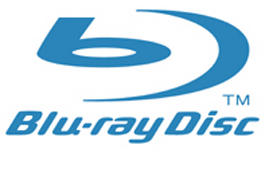Capacity per disc layer
Looking at the next generation optical disc formats, one thing is for sure, the Blu-ray format has a capacity per layer advantage. Blu-ray Discs hold approximately 25GB of data per layer, while HD DVD’s hold approximately 15GB per layer. And while this information is nothing new to report on, it is an interesting factor to consider when we are looking at Blu-ray vs HD DVD manufacturing costs. The simple truth is, the more layers you add to a disc, the more expensive it is to manufacture.

Setup costs are charged per layer
As I previously reported, only smaller batches of media require a setup fee or mastering fee at the optical disc replication plant that I spoke with. This initial setup cost is charged on a per layer basis. With this in mind, we can look at the Blu-ray vs HD DVD replication costs again in regards to multi-layered, high capacity discs. Triple layer HD DVD media is on the way, with a total capacity of 45GB (or possibly 51GB if the currently under development 17GB per layer HD DVD media is launched). Dual layer Blu-ray discs are already in use, with a total capacity of 50GB. These two formats (tri-layer HD DVD and dual layer Blu-ray) are the closest in capacity than any other HD DVD / Blu-ray pressed media types. With this in mind, what media type will be the most expensive to replicate on?
Dual layer Blu-ray vs Triple layer HD DVD
At this point we have absolutely no idea what the pricing on triple layer HD DVD will be, but if we look at the current per layer setup fees that were provided by the replication plant that I spoke with, we can see that triple layer HD DVD setup fees would cost very close to dual layer Blu-ray media setup fees. Currently they charge $1,500 per HD DVD layer and $2,500 per Blu-ray layer as a setup cost, so theoretically a triple layer HD DVD would carry a setup fee of $4,500 compared to a dual-layer Blu-ray setup fee of $5,000. In this case, the setup fee for a “high capacity” 45GB HD DVD disc replication job would be less than the setup fee for a dual layer Blu-ray replication job. But let’s not forget that adding an additional layer also adds more to the cost per disc charge. So will triple layer HD DVD’s cost more or less to replicate than dual-layer Blu-ray discs? No one knows for sure at this point, but I predict that the tri-layer HD DVD cost will be very close to or slightly higher than the cost of dual layer Blu-ray replication. It will be interesting to find out once triple layer HD DVD media is finally released and available for content providers to utilize. For now we can only theorize by considering the current pricing, but I will definitely be keeping an eye out for the release of triple layer HD DVD and its’ associated costs.

When will triple layer HD DVD be available? AND, will it be compatible with the current HD DVD players?
Hi Dave, I don’t have any information on when triple layer HD DVD will be available or its’ compatibility with first generation HD DVD players. I’m not even sure if the format specification has been approved yet by the DVD Forum.
Anyone else have any info on triple layer HD DVD?
What about the HD DVD/DVD combo discs? A substantial amount of HD DVDs are released this way.
Releasing on the combo DVD/HD DVD format will add even more costs to the replication fees. Good point Steve.
Universal said 90% of their titles from now on are going to be hybrid.
I think it’s VERY interesting that Warner has claimed that a TotalHD disc (Blu-ray one side, HD DVD the other side) “will not be materially more” than a standard HD disc….
Yeah right, define “materially more” Warner. I’ll believe that when I see it.
What’s an HD DVD?
Funny Bob 🙂
This article was written when the HD format war was still going on strong.